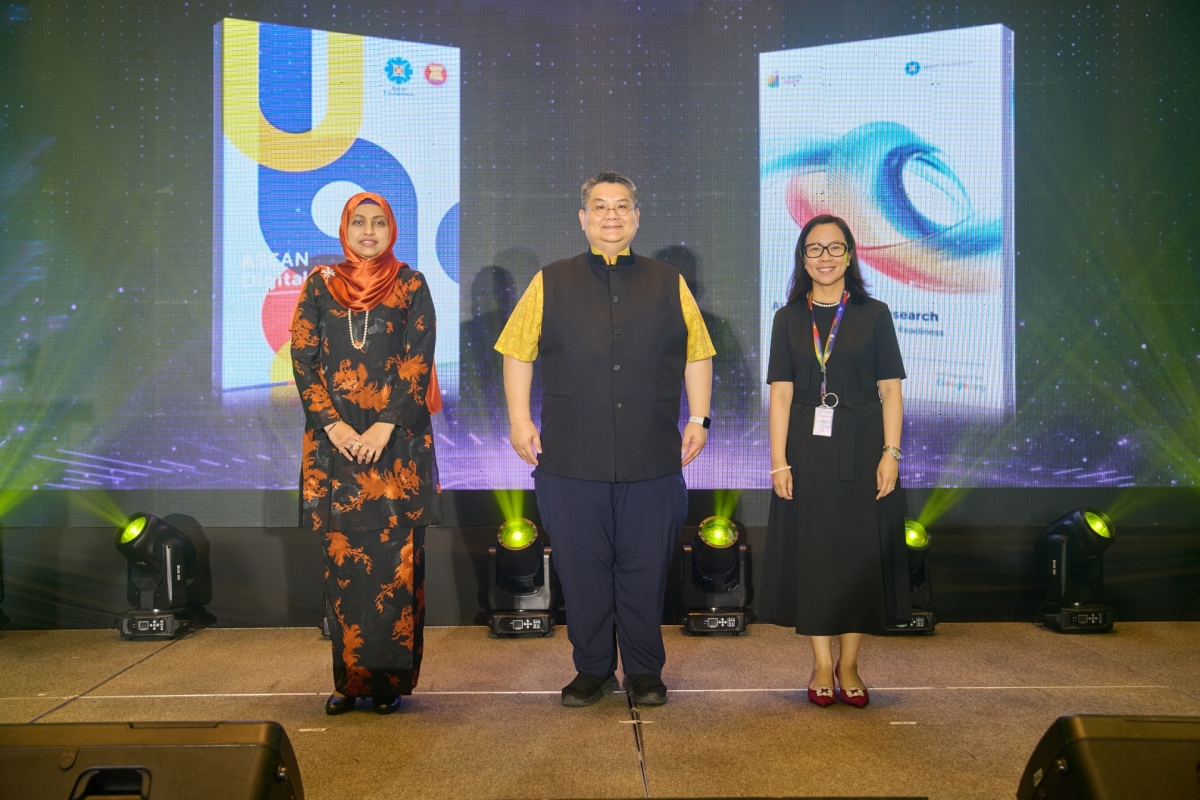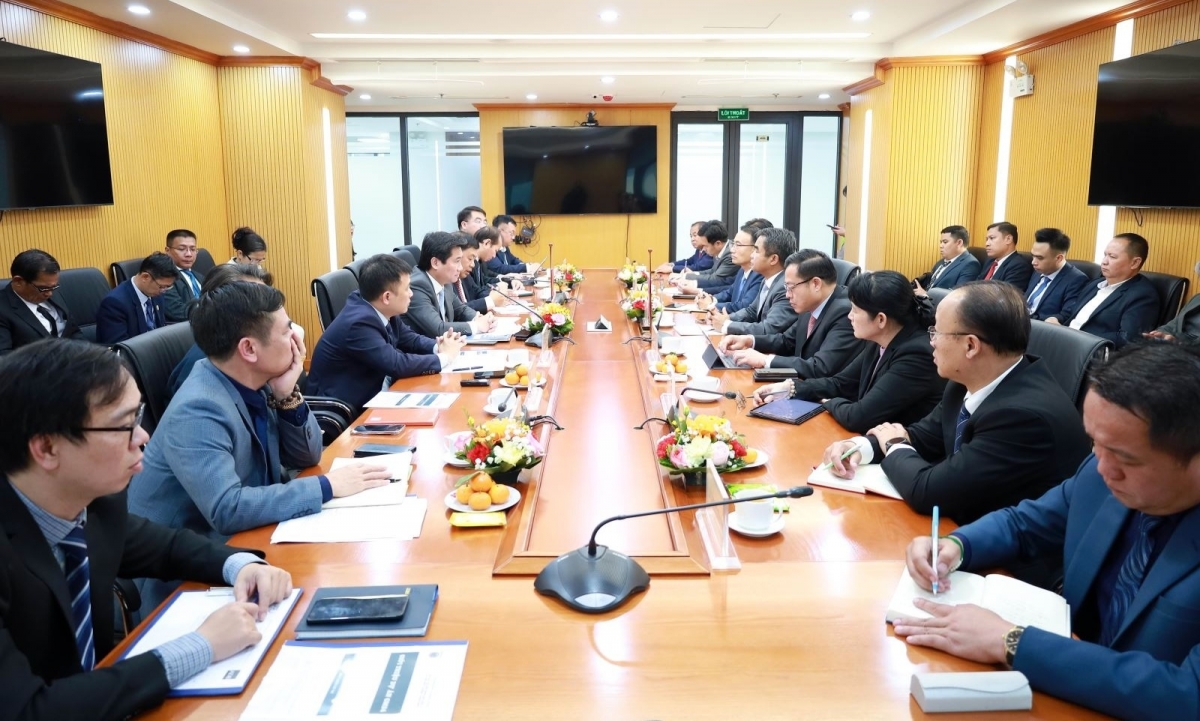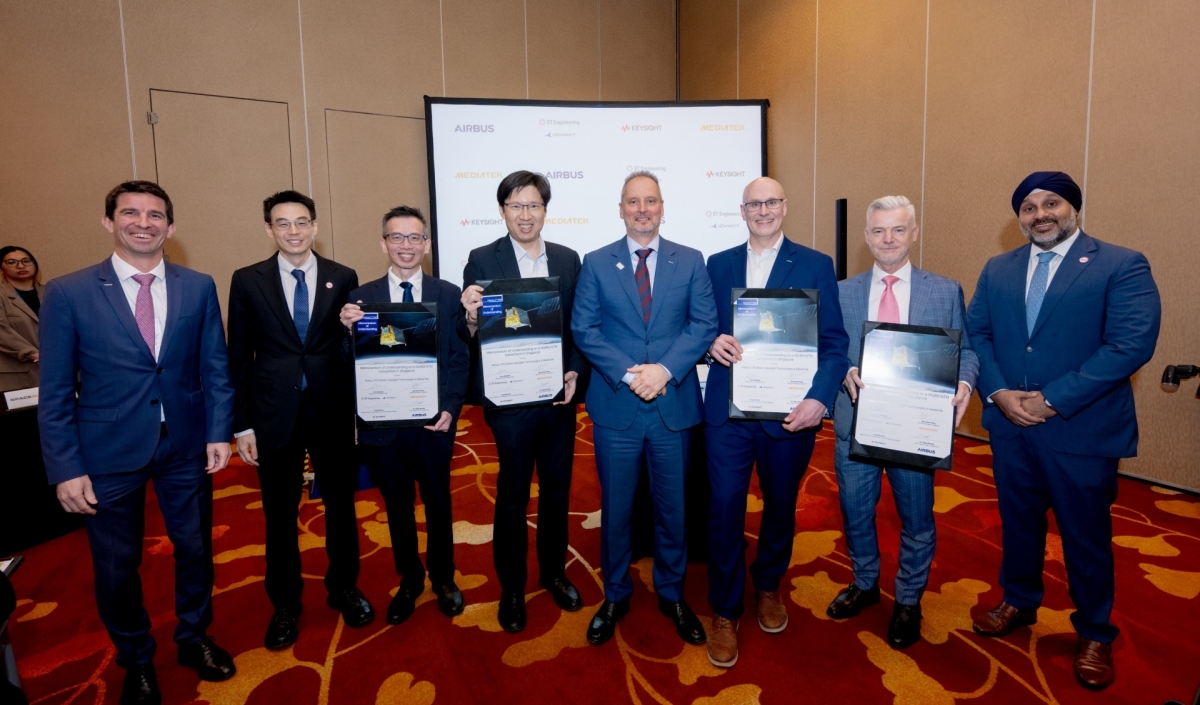INTERNATIONAL INVESTMENT
AND PORTAL
Japanese Prime Minister Kishida Fumio on December 16 told Vietnamese counterpart Pham Minh Chinh at bilateral talks on the occasion of a commemorative summit for the 50th year of ASEAN-Japan friendship and cooperation in Japan that his nation will continue assisting Vietnam in industrialisation and modernisation, and building an independent, self-reliant economy that deeply integrates into the global community.
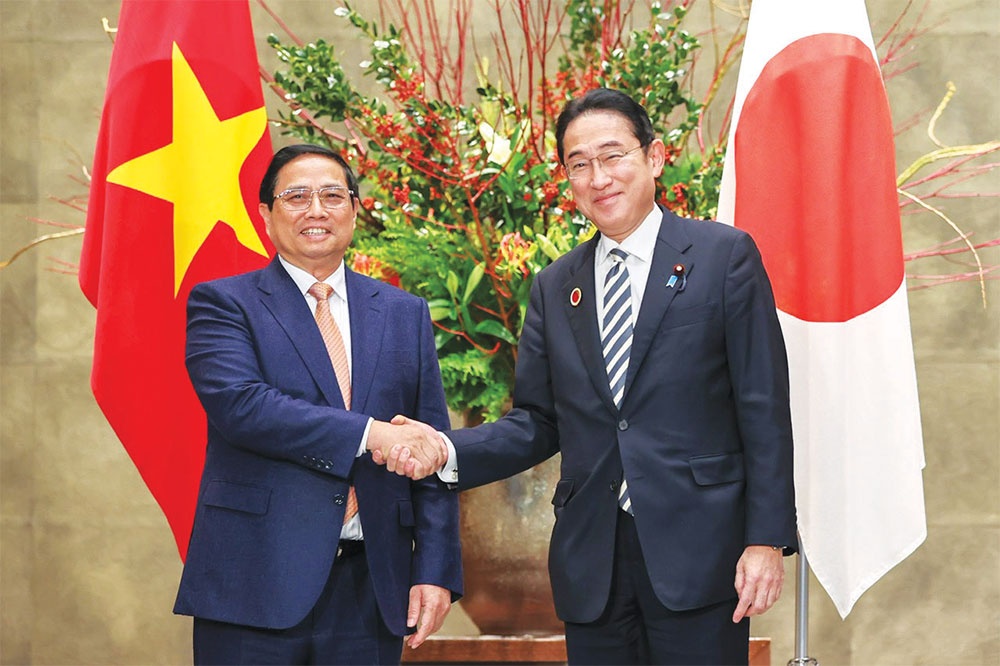 Japanese Prime Minister Kishida Fumio (right) and Vietnamese counterpart Pham Minh Chinh, photo VNA
Japanese Prime Minister Kishida Fumio (right) and Vietnamese counterpart Pham Minh Chinh, photo VNA
This was the sixth meeting between the pair over the past two years and the second in 2023. The Japanese leader expressed his desire to continue to actively support Vietnam through official development assistance (ODA) in areas where Japan’s technology and expertise can be used.
The two prime ministers witnessed the exchange of cooperation documents between the two nations, which involved the fourth loan agreement for Ho Chi Minh City’s urban railway construction project, the Japan Development Scholarship project, and the equipment supply project for Vietnam’s K Hospital, with a total sum of ¥42.3 billion (nearly $300 million).
Construction progress for metro line 1 in Ho Chi Minh City has reached 96 per cent, according to a report from the Ho Chi Minh City Management Authority for Urban Railways, and is expected to become operational from July 2024.
At last week’s meeting in Japan between PM Chinh with Tanaka Akihiko, president of the Japan International Cooperation Agency (JICA), he suggested that Japan continue providing new-generation ODA for Vietnam with more incentives about lending rates and loaning time, as well as more favourable procedures, with a focus laid on five key sectors.
The sectors include strategic infrastructure development such as transport, especially high-speed railways, seaports, airports, and roads; emerging sectors including digital transformation, green transformation, response to climate change, new energy, and semiconductors; human resources training and labour cooperation; healthcare and education; and environmental protection and raising public living quality.
Sharing recognition
JICA has effectively worked with the Vietnamese side over the year to implement procedures for a new-generation ODA sum valued at $351 million and ODA-funded projects, making Japan the largest ODA provider for Vietnam.
Akihiko said JICA will closely work with ministries, sectors, and localities to implement priorities mentioned by PM Chinh, and proposed that Vietnam will continue working with JICA to jointly settle difficulties arising from the implementation of specific projects. Vietnam and Japan have welcomed the prospect that the actual amount of loans this fiscal year of Japan could exceed ¥100 billion ($674 million) for the first time since the Japanese FY 2017.
Under a joint statement released during the official visit to Japan by Vietnamese State President Vo Van Thuong in late November, he and PM Fumio reaffirmed that they should accelerate efforts to resolve outstanding difficulties in implementing Japan’s ODA projects, including technical cooperation in Vietnam.
They also expressed intention to enhance the promotion and implementation of new projects under Japan’s new Development Cooperation Charter, including “Co-creation for common agenda initiative” in areas such as infrastructure, digital transformation, green transition, climate change response, and healthcare, recognising the importance of simple procedures and flexibility.
“Sharing the same recognition of the need to promote major economic projects including Japanese ODA and foreign direct investment, the two leaders proclaimed to identify those projects at the earliest possible timing, thereby exploring the possibility of establishing a Japan-Vietnam coordinating working group led by both governments in Vietnam to accelerate identified major projects,” the statement read.
According to JICA in Vietnam, from April 2022 to the end of March 2023, the total value of ODA loan commitments is ¥18.9 billion ($126.1 million), exclusive of investment financing for the private sector. The value of ODA capital is ¥4.7 billion ($31.36 million) for technical cooperation projects and ¥700 million ($4.67 million) for projects with non-refundable aid projects. The total number of projects with Japanese ODA mount to over 100.
Sugano Yuichi, chief representative at JICA Vietnam, noted that it has been deploying many projects in Vietnam across various sectors. The most well-known projects in Vietnam involve the construction of the T2 terminal at Noi Bai International Airport, and building Nhat Tan Bridge, among others.
“These projects have helped improve the connection between the airport and the Hanoi city’s centre, and they have received applause from the public thanks to their great effectiveness,” Yuichi told VIR. “I think that they are typical of the successful cooperation of Japan in Vietnam.”
Japan’s vital role
According to Vietnam’s Ministry of Planning and Investment, Vietnamese investors have invested 106 projects in Japan, with total registered capital of $19.5 million. Meanwhile, cumulatively as of November 20, Vietnam wooed nearly 5,230 Japanese projects registered at $71.4 billion, ranking third out of 143 foreign countries and territories investing in Vietnam.
Vietnam and Japan have confirmed the enhancement of supply chain resilience to ensure stable production activities, recognising the importance of a transparent, diverse, secure, sustainable, and reliable supply chain. Asserting that Vietnam plays an important role in diversification and upgrading of supply chain network through digital technology and other means for Japan, in the joint statement Japan expressed its intention to conduct activities that contribute to supply chain diversification and upgrading for Japanese companies, as well as facilitate Vietnamese businesses to participate more deeply and substantially in the Japanese businesses-led global supply chain.
“Vietnam expressed its readiness to create better conditions for Japanese firms to invest. Both sides also expressed their readiness to jointly develop future oriented co-creation projects,” the statement read.
Both nations have also asserted that the two countries will further promote cooperation in the development of the digital economy and innovation in that field, thereby creating momentum for rapid and sustainable economic development. Noting digital government, digital economy, digital society, and new potential core industry such as semiconductors-related industries, both countries have also confirmed their commitment to cooperating in the development of those areas.
Additionally, Vietnam and Japan have also acknowledged the importance of facilitating free flow of data across borders, developing digital connectivity, and strengthening consumer and business trust in the digital economy.
Japan is currently the largest ODA provider to Vietnam (about $30 billion), the second labour cooperation partner, the third tourism and investment, and the fourth trade partner of Vietnam. In the first 11 months of 2023, two-way trade hit $36.8 billion – including $19.2 billion worth of Vietnamese exports, and imports of $17.6 billion, according to Vietnam’s Ministry of Industry and Trade.
The government has sent a report to the National Assembly Standing Committee stating that disbursement of ODA and foreign concessional loans so far in the 2021-2025 period remains at a slow pace, lower than initial estimates.
Approved public investment from these capital sources sits at about $12.6 billion, including a provision sum of $1.26 billion for the medium-term public investment plan for 2021-2025. The legislature and the prime minister have so far allocated nearly $9.93 billion to ministries, central agencies, and localities.
In which, total public investment from these capital sources for the 2021-2023 period stood at $4.87 billion, including $2.17 billion for 2021, $1.47 billion for 2022, and $1.22 billion for this year.
Disbursement results, however, showed that the disbursement hit 32.85 per cent of the initial plan in 2021 and 45.45 per cent last year.
Do Hung Viet, deputy minister of Foreign Affairs
The trip to Japan by Prime Minister Pham Minh Chinh has been an important activity to wrap up 2023 and celebrate the 50th anniversary of Vietnam-Japan relations. The trip was made just two weeks after the two countries elevated their ties to a new level, termed a comprehensive strategic partnership for peace and prosperity in Asia and the world.
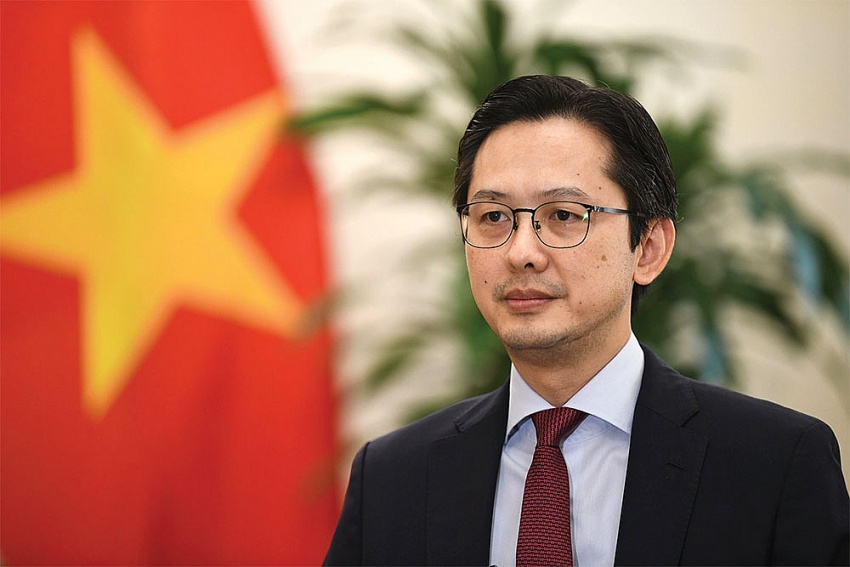
The trip has helped further deepen the political trust and consolidate the fine personal relations with the political circle of Japan. It also the first step for materialising the new cooperation framework.
The trip has earned outstanding and practical results in bilateral economic cooperation. Both sides have agreed to expand cooperation in ensuring economic security, with importance attached to further facilitating Vietnamese businesses’ participation in Japanese enterprises’ global supply chain, particularly in the industries of manufacturing automobiles, electronics, medical equipment, and garments and textiles. Japanese PM Kishida Fumio and leaders of all Japanese circles continued to state their support for Vietnam to successfully conduct industrialisation and modernisation and build an independent and self-reliant economy.
At the Vietnam-Japan Economic Forum partaken in by more than 500 Japanese businesses, PM Chinh conveyed a message asking Japanese businesses to further increase investment in Vietnam. He also witnessed ministries, sectors, and businesses of the two countries exchanging over 30 cooperation documents, worth nearly $3 billion, focusing on industries such as finance, education, healthcare, and industrial park investment.
The two countries’ efforts to make official development assistance (ODA) cooperation more vibrant also achieved concrete and substantive results when the two prime ministers witnessed the exchange of three signed documents for three ODA projects valued at more than $200 million, contributing to bringing the total value of ODA cooperation between the two nations in 2023 to nearly $800 million, the highest since 2017.
At the same time, both sides have also affirmed the early implementation of new Japanese ODA projects with high incentives, and simple and flexible procedures in the industries needed by Vietnam, especially in strategic infrastructure construction.
At meetings with leaders of leading Japanese groups, they highly appreciated the development and stability of Vietnam’s economy as well as business and investment prospects in the country. They stand ready to invest and expand business in Vietnam’s priority industries, and propose a number of specific measures to continue improving the investment environment and enhance the competitiveness of the Vietnamese market.
Japanese businesses pay high attention to Vietnam’s policies and needs, and strongly committed to promoting investment and cooperation with the country in new fields. More than half of the documents signed between ministries, sectors, localities, and businesses of the two countries at the forum are in new cooperation sectors, including building smart cities and green transformation, digital transformation, logistics, AI, and robotics.
This could be the first step for a wave of Japanese investment in new fields in Vietnam in the near future.




